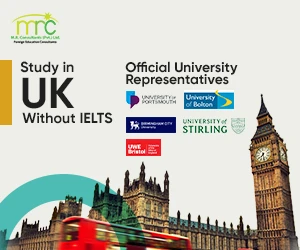
Studying in Canada offers a world-class education in a diverse and welcoming environment. With its top-ranked universities, cutting-edge research opportunities, and a strong focus on multiculturalism, Canada is a popular destination for international students. Additionally, the country's post-graduation work permit program allows students to gain valuable work experience after completing their studies, making it an attractive choice for those looking to launch their careers on a global stage.
Why Part Time Working Is Important While Studying Abroad
Part-time work while studying abroad holds immense importance. It not only helps students financially by covering living expenses and tuition fees but also fosters valuable skills like time management, communication, and problem-solving. Moreover, it provides a chance to immerse in the local culture, build a professional network, and gain practical experience that can enhance one's employability upon graduation. Overall, part-time work complements the academic journey and enriches the study abroad experience.
Hours You Are Allowed To Work In Canada During Studies
In Canada, international students are allowed to work part-time while studying, and the number of hours they are permitted to work 20hrs /week. Here's a detailed explanation of the regulations regarding working hours for international students in Canada:
On-Campus Work
International students with a valid study permit are generally allowed to work on-campus without a separate work permit. They can work up to 20 hours per week during regular academic sessions (fall and winter semesters) and full-time during scheduled breaks, such as summer and winter holidays. Full-time during breaks means you can work unlimited hours during these periods.
Off-Campus Work
Under certain conditions, international students can also work off-campus without the need for an additional work permit. To be eligible for off-campus work, you must have a valid study permit, be enrolled full-time at a designated learning institution, and have been studying for at least 6 months. The maximum allowed work hours are up to 20 hours per week during regular academic sessions and full-time during scheduled breaks.
Co-op or Internship Programs
If your program includes a mandatory co-op or internship component, you can work full-time during these work terms as long as it is an integral part of your program of study.
Post-Graduation Work Permit (PGWP)
After completing your program of study, you may be eligible to apply for a PGWP, which allows you to work in Canada for up to three years, depending on the length of your program. The PGWP provides an excellent opportunity to gain Canadian work experience and potentially transition to permanent residency.
Work Authorization Conditions
It's crucial to check the specific conditions outlined on your study permit to ensure compliance with the work hours allowed. Violating these conditions could lead to consequences, including the revocation of your study permit.
Designated Learning Institutions (DLIs)
You must be enrolled in a DLI to be eligible for both on-campus and off-campus work opportunities. It's essential to confirm that your institution is a DLI before applying for a study permit.
Work During the Application Process
If you're waiting for your study permit application to be processed and your eligibility to work, you may be able to work on-campus once you have received a Port of Entry (POE) Letter of Introduction.
Universities In Canada For Pakistani Students |



.gif)


 736
736
 0
0



























